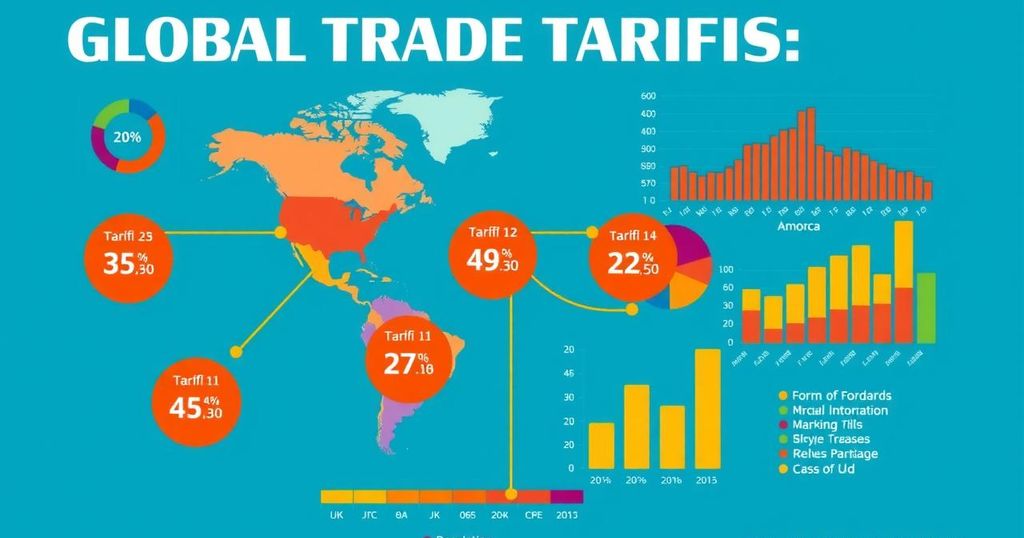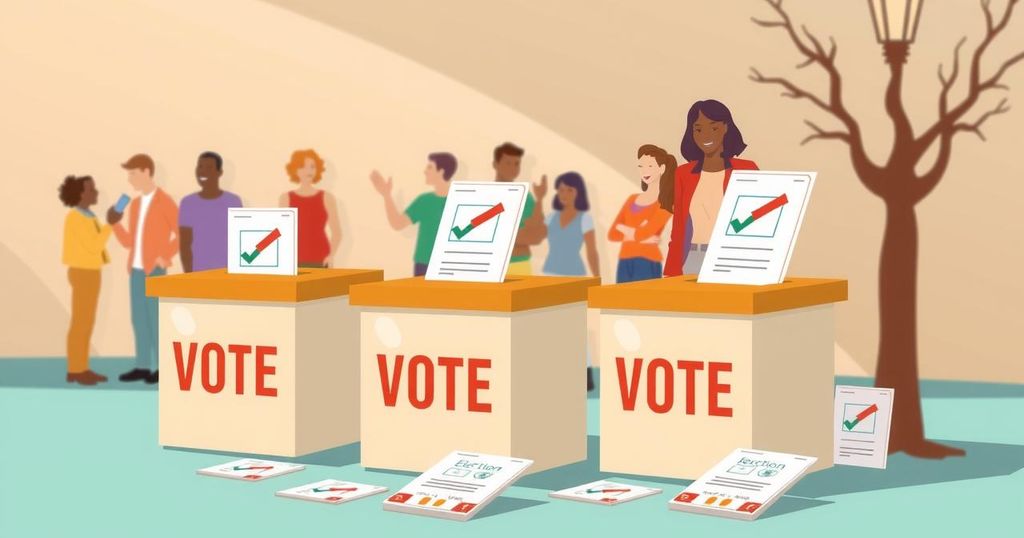The White House confirmed President Trump’s “Liberation Day tariffs” on April 2, emphasizing no exemptions on reciprocal tariffs due to high foreign tariffs on U.S. products. Karoline Leavitt highlighted significant tariffs from countries like Japan and India, calling for reciprocity. The administration also released a report on foreign trade barriers, stressing efforts to level the playing field for American industry.
On Monday, White House spokesperson Karoline Leavitt announced that there will be no exemptions on reciprocal tariffs as President Donald Trump moves forward with his “Liberation Day” tariffs, aimed at addressing significant tariffs imposed by other countries on American goods. Leavitt highlighted that current tariffs on American products include a notable 700% tax from Japan on rice and a 100% tariff from India on agricultural products, indicating the need to rectify these “unfair trade practices.”
As President Trump prepares to announce these tariffs on April 2, he has expressed a commitment to implementing both country-specific and sectoral tariffs. Leavitt emphasized the necessity for reciprocity in trade, pointing out that the existing high tariffs faced by American exports have harmed numerous businesses and American workers over the decades.
The administration seeks to address the challenges posed by foreign tariffs through reciprocal measures that would create a level playing field for American manufacturers. Leavitt, holding a chart highlighting tariffs from various countries, reiterated how these steep charges make it exceedingly difficult for American products to enter foreign markets.
In conjunction with the tariff announcement, the Trump administration released a comprehensive report detailing foreign trade barriers. This report identifies various regulatory and tariff-related obstacles that hinder American exports, including lengthy approval processes for genetically modified crops in the EU and Canada’s stringent dairy tariffs.
Overall, this initiative represents a significant stance against perceived trade injustices faced by American industries. Although the precise effects of the recently published trade barrier report on Trump’s tariff strategy remain uncertain, it underscores the administration’s commitment to reforming trade relations and protecting U.S. businesses and workers in the global market.
The White House’s announcement regarding President Trump’s “Liberation Day tariffs” underscores a strategic push towards rectifying perceived inequities in international trade. By focusing on reciprocity, the administration aims to address high tariffs imposed by countries like India and Japan that hinder American exports. The accompanying trade barriers report further emphasizes the need for reform in trade relations, indicating the administration’s dedication to supporting American businesses and workers amidst complex global trade dynamics.
Original Source: www.ndtv.com




